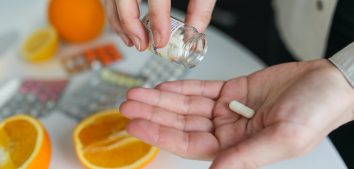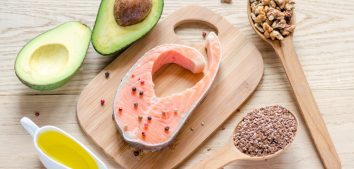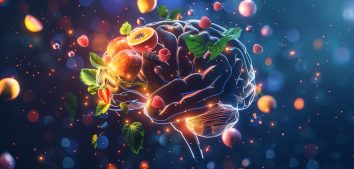
What to drink during your workout?
Your demand for water increases rapidly during exercising. The more active you are, the more water you should supply.
The main sources of water in our diet are drinks and mineral water. Remember not to include coffee or alcohol here as they have the opposite effect – they lead to dehydration. When it comes to professional athletes with intense training programmes, it is recommended that they have isotonic or slightly hypotonic drinks. Following the rules of hydration is especially vital when you do your workout in difficult weather conditions (high temperature or humidity).
Self-diagnosis – do you need better hydration?
Below you will find a list of situations when your demand for water is bigger than usual:
- You do a manual job and lose water mostly through sweating
- You do more sport
- You consume alcohol
- You drink large amounts of coffee
- Air temperature is high
- The air is warm and humid
- There’s a lot of protein in your diet
- You eat more high-fiber products
What are the most common symptoms of dehydration?
Dehydration is dangerous for our health. In extreme cases it may even lead to a collapse or hallucinations. Sometimes our body gives us some hints that we should make up for water losses. Below I have listed the symptoms that mean you should immediately provide your body with fluids.
- You rarely go to the toilet
- Your urine has a dark colour
- You have headaches or dizziness
- You get muscle cramps
- You can feel that your mouth is dry
- You may also experience chills or nausea
It turns out that even small water losses can lead to worse sports performance. Supplementing water and electrolytes will not only prevent these symptoms, but will also help you achieve better performance during exercise. Depending on the prevailing conditions, the time of training, and the physical exercise you have chosen, you should supplement the liquids by drinking water or specially designed isotonic beverages.
If your physical activity isn’t longer than 60 minutes, you can safely use still mineral water for hydration. However, when your activity exceeds one hour or if you train at hot temperature, it is advisable to use isotonic drinks for athletes, and in case of high-intensity training – beverages containing glucose polymers.
Isotonic drinks compensate for the loss of electrolytes caused by physical activity, provide energy and do not interfere with the absorption of water. In order to be effective they should contain from 80 to 350 kcal per 1 litre, and at least 75% of energy should come from sugars with a high glycemic index. An isotonic drink should also contain from 460mg to 1150mg of sodium per 1 litre.
How to hydrate properly?
It is estimated that you should drink 400-600 ml of fluids about 2-3h before an intense workout, and you should have about one cup of water or isotonic drink 15-20 minutes directly before a workout. You should have about 150 – 300 ml of fluids every 15 minutes of intense workout, and it is recommended to supplement 150% of the lost fluids after your workout, which equals about 4ml/kg of body weight per every hour of training.
Is it possible to overdo rehydration after exercise?
Water works great as a solvent and is a carrier of many crucial nutrients. It helps maintain the right temperature as it is key in the whole thermoregulatory system.
Drinking water is associated with so many benefits that many people think it’s impossible to have too much of it. It’s a MYTH! Athletes who hydrate their bodies too much may experience overhydration which, despite being quite rare, can happen to anyone. As a result of blood thinning and a decrease in sodium concentration, muscle, brain and heart function may be disturbed.
Balance and moderation is important in proper hydration. Drinking only water, at the expense of isotonic drinks, can lead to a significant loss of important elements from the body. On the other hand, rehydrating solely with isotonic drinks can also result in serious consequences. Therefore, remember that it is crucial to adjust the amount of fluids to your needs, type of training, its length and the prevailing conditions.
Bibliography:
- Kenefick RW, Cheuvront SN. Hydration for recreational sport and physical activity. Nutr Rev. 2012, Suppl 2: 137-142.
- Maughan RJ, Shirreffs SM. Dehydration and rehydration in competitive sport. Scand J Med Sci Sports, 2010. Suppl 3: 40-7.
- Burke L, Practical sports nutrition. Belconnen, Australia, Human Kinetics, 2007









Comments No Comments
Join the discussion…